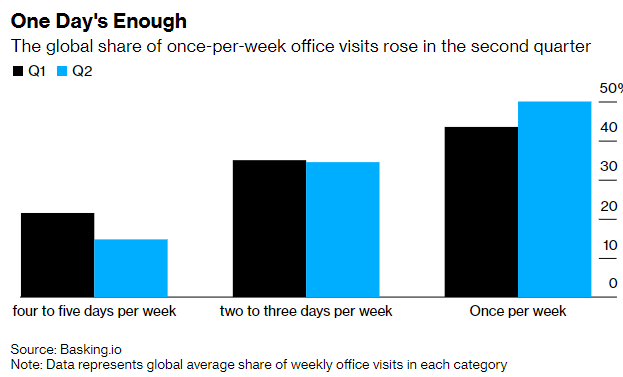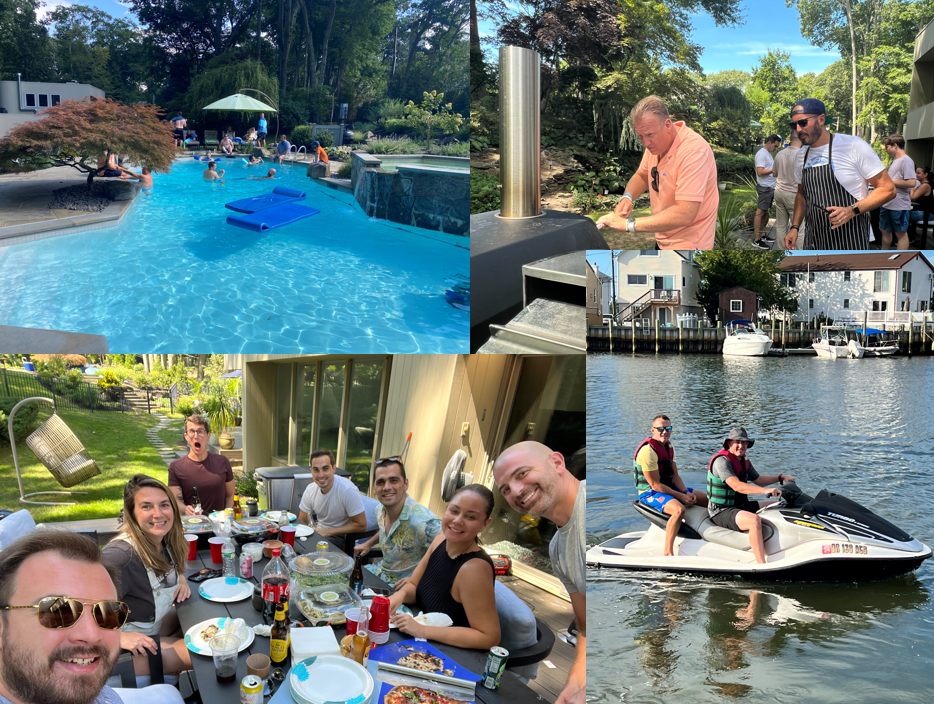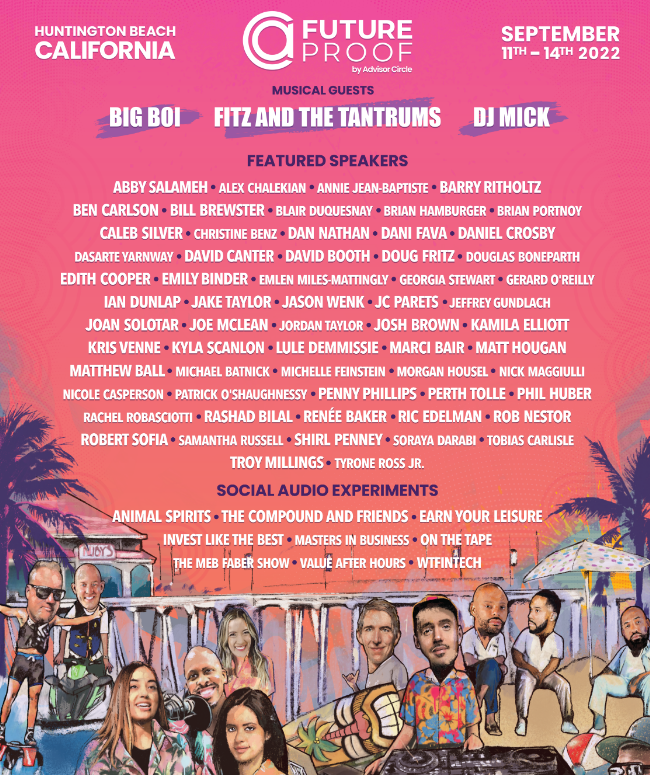There were a lot of predictions at the outset of the pandemic about how the world would be changed forever.
Some were kind of right. Others were very wrong. So it goes with these things.
The one that never made sense to me is how colleges were going to get disrupted by online classes once students saw how pointless it was to go to class.
If anything, the pandemic proved how necessary it is for young people to interact with their peers. The social and networking aspects of college might be even more important now than they were before the pandemic.
This is especially true when you consider how many college grads could be taking remote jobs right out of graduation.
The move to remote work feels like a trend that is still being underappreciated for the long-lasting ripple effects it will have going forward.
Housing, commercial real estate values, voting patterns, commuting time, business travel, the ability to find the job you want, infrastructure spending, family dynamics and general levels of happiness could all be massively impacted by the ability to work from home (or anywhere you choose).
Bloomberg recently highlighted a study that shows one day a week in the office is now the preferred work schedule globally:
A full 50% of office visits globally were just once a week in the second quarter, up from 44% in the first quarter, according to data from Basking.io, a workplace-occupancy analytics company. At the same time, fewer people made the commute four to five days a week, especially in large cities.

I’ve been working remotely for 7 years now. There are a lot of benefits.
It’s more efficient to work alone in an office because it’s much harder for people to bother or distract you. It’s more flexible. You can basically set your own schedule. The commute is much shorter.
But there are some downsides.
Zoom, Slack, Microsoft Office and Gmail make it easy to work from anywhere but you lose a lot of the social aspects of interacting in the office on a daily basis. There’s a lot you can miss out on, not just in terms of socializing and getting to know people, but also the culture of the organization you work for.
Remote work requires a more concerted effort to be social. Therefore, business travel in the future might be more about social events than actual work.
I took two “work” trips this summer. I put work into quotes here because while there was some work done on these trips, they were mostly social events with co-workers.
I met up with our operations team in Chicago and we all went to a Cubs game together:

A couple of weeks ago I flew out to New York City, but instead of working at the office in Manhattan, we went to Long Island for a cookout/pool party with co-workers and spent some time on the ocean:

These functions had a work element to them. People still have to attend to their responsibilities. But they’re also a wonderful time to reconnect, meet new employees (many of whom I only knew through Zoom or phone calls) and further develop the culture of the firm.
And invariably while socializing, you can have conversations about work that are more organic than you get on a Zoom call.
There was always some element of socializing built into business travel in the past what with dinners and drinks and such but it’s going to be even more important now to make a concerted effort to put yourself in more social situations in a world that is more comfortable with remote work.
I haven’t been to any conferences since the start of the pandemic.
It’s not that I’m against conferences per se but I have a hard time justifying the travel to sit in a hotel ball room to listen to a handful of panels on subjects I can hear about on podcasts or Zoom calls.
The biggest selling point for most conferences is the ability to interact with your industry peers. Sure, there are certain speakers, topics or panels that can enlighten you but socializing is the most impactful thing for the majority of conference-goers.
Technology makes it so easy to stay home these days that you need to entice people to travel for business.
That’s why we wanted to create an event that has a more laid-back feel than the stuffy hotel conference rooms. So we partnered with the team at Advisor Circle to create something unlike any other financial conference you’ve ever attended.
It’s in Huntington Beach, CA. It’s outside (the stages will be on the beach). With the help of the local Chamber of Commerce, we basically rented out an entire city block of hotels, restaurants and bars so you can interact with other people in wealth management, tech and venture capital.
The list of speakers is loaded and there are even going to be some live podcasts recorded as part of the event (including my podcast Animal Spirits).
But I’m really looking forward to seeing friends I haven’t seen in 3-4 years and catching up over a beer. I’m looking forward to meeting new and interesting people. I’m looking forward to spending some time on the beach. I’m looking forward to some great musical acts. And I’m looking forward to having a Miami Vice (or three).
We’re looking at something like 2,500 people signed up as of right now but still have some spots available if you’re interested. It’s going to be a lot of fun.
You can register here and book a room here.

Source : A Wealth of Common Sense















